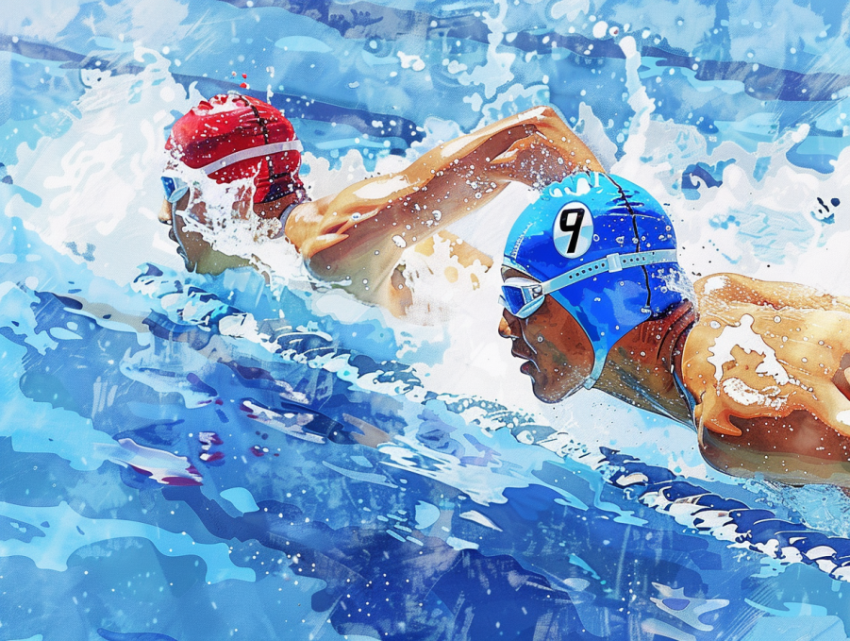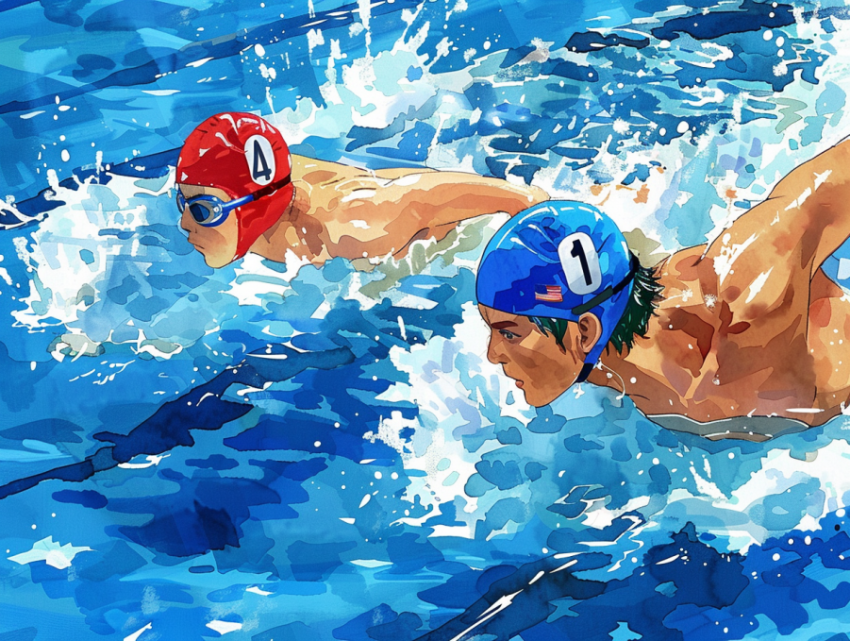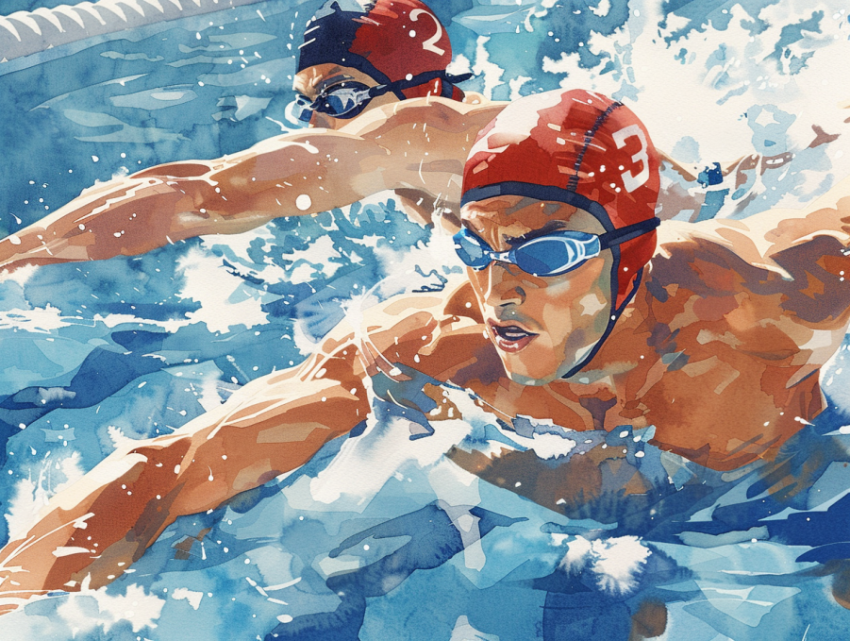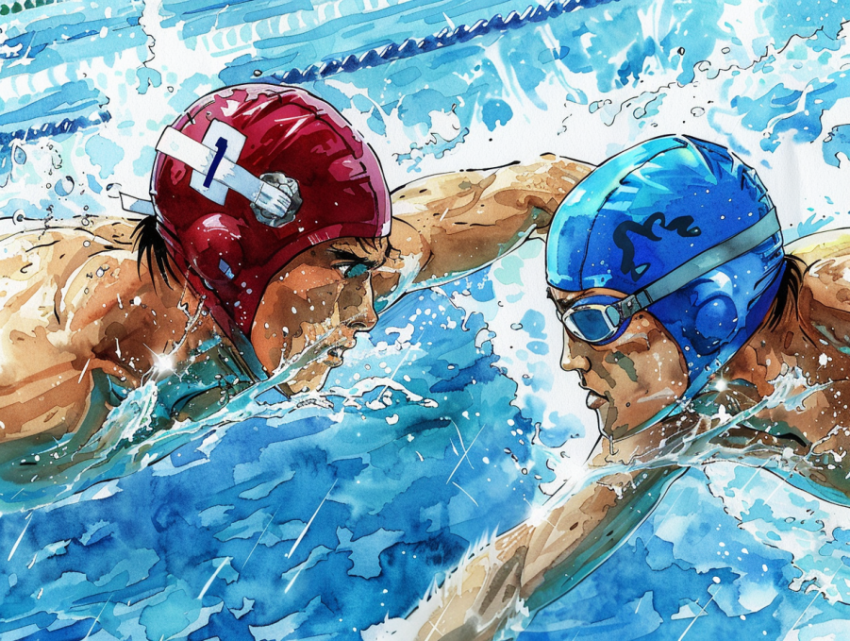



Swimming: A Comprehensive Guide to Strokes, Techniques, and Competitions
Swimming is a popular recreational activity, a competitive sport, and a valuable life skill. It involves propelling oneself through water using various arm and leg movements. This guide provides a comprehensive overview of swimming, covering different strokes, essential techniques, training methods, major competitions, and the numerous health benefits associated with it.
Swimming Strokes
There are four main competitive swimming strokes:
- Freestyle (Front Crawl): The fastest and most efficient stroke, characterized by alternating arm movements and a flutter kick.
- Technique: Body is horizontal in the water, with alternating over-the-water arm recovery and a narrow, rapid flutter kick.
- Backstroke: Performed on the back, with alternating arm movements and a flutter kick.
- Technique: Body is horizontal on the back, with alternating over-the-water arm recovery and a narrow, rapid flutter kick. The head is in a neutral position looking up.
- Breaststroke: The slowest of the competitive strokes, involving a simultaneous frog-like kick and a symmetrical arm movement.
- Technique: Arms move in a semi-circular motion in front of the body, while the legs perform a frog kick. The head bobs in and out of the water for breathing.
- Butterfly: The most physically demanding stroke, characterized by a simultaneous over-the-water arm recovery and a dolphin kick.
- Technique: Both arms move simultaneously in an over-the-water recovery, while the legs perform a dolphin kick (legs together, moving up and down in a wave-like motion).
Essential Swimming Techniques
- Body Position: Maintaining a streamlined, horizontal body position in the water reduces drag and improves efficiency.
- Breathing: Developing a rhythmic breathing pattern is crucial for endurance and performance.
- Kicking: Provides propulsion and helps maintain body position. Different kicks are used for different strokes (flutter kick, dolphin kick, frog kick).
- Pulling: The arm movements that propel the swimmer through the water.
- Timing and Coordination: Coordinating arm and leg movements with breathing is essential for efficient swimming.
Training for Swimming
- Warm-up: Preparing the body for exercise with light swimming and dynamic stretching.
- Drills: Specific exercises to improve technique, such as kick drills, pull drills, and stroke drills.
- Interval Training: Alternating periods of high-intensity swimming with periods of rest or low-intensity swimming.
- Endurance Training: Longer, continuous swims to build stamina.
- Strength Training: Exercises to build muscle strength and power, often done out of the water.
- Cool-down: Gentle swimming and stretching to help the body recover after exercise.
Major Swimming Competitions
- Olympics: Swimming is one of the most popular and prestigious sports at the Summer Olympics.
- FINA World Aquatics Championships: A major international competition featuring swimming, diving, water polo, synchronized swimming, and open water swimming.
- FINA Swimming World Cup: A series of short course (25-meter pool) swimming competitions held throughout the year.
- European Aquatics Championships: A major competition for European swimmers.
- Pan Pacific Swimming Championships: A major competition for swimmers from non-European countries.
Benefits of Swimming
- Physical Health:
- Cardiovascular Fitness: Improves heart and lung health.
- Muscle Strength and Endurance: Works all major muscle groups.
- Low-Impact Exercise: Gentle on the joints, making it suitable for people of all ages and fitness levels.
- Weight Management: Burns calories and helps with weight loss or maintenance.
- Mental Health:
- Stress Relief: Can be a relaxing and meditative activity.
- Improved Mood: Releases endorphins, which have mood-boosting effects.
Conclusion
Swimming is a versatile and rewarding activity that offers numerous physical and mental health benefits. Whether you're a competitive swimmer striving for Olympic glory or a recreational swimmer enjoying a leisurely dip in the pool, swimming provides a fantastic way to stay fit, have fun, and improve your overall well-being. By mastering the different strokes, practicing proper techniques, and engaging in regular training, you can unlock the full potential of this dynamic and enjoyable aquatic sport.
Top Ranked Keywords:
Swimming, swimming strokes, swimming techniques, swimming training, swimming competitions, Olympics, FINA, freestyle, backstroke, breaststroke, butterfly, swimming pool, swimming lessons, swimming benefits, swimming drills, swimming workouts, swimming gear, swimming news, swimming world.

